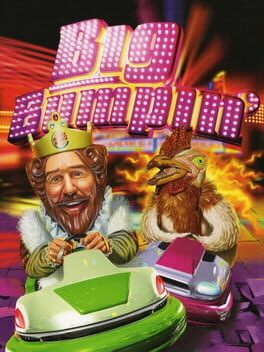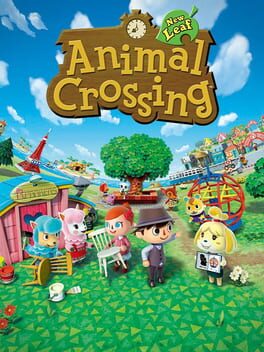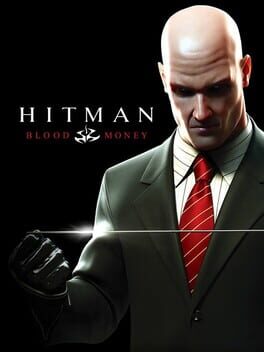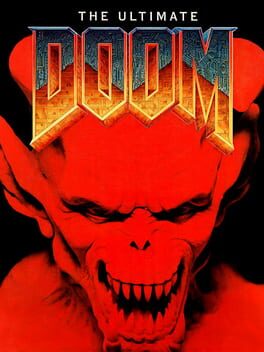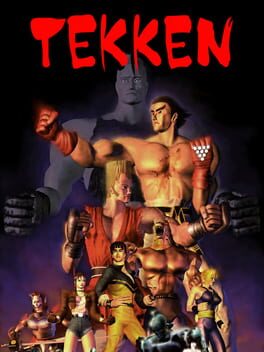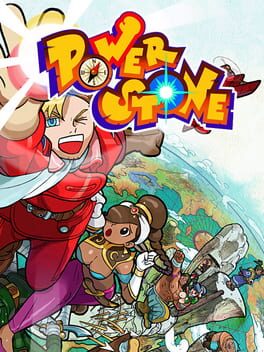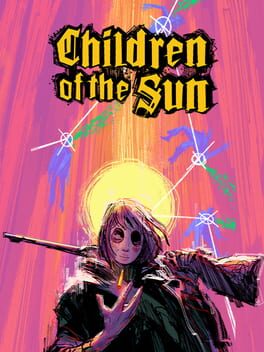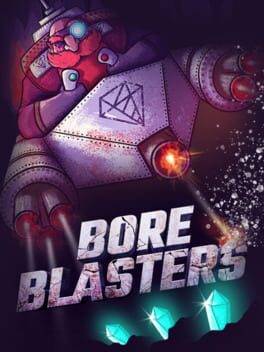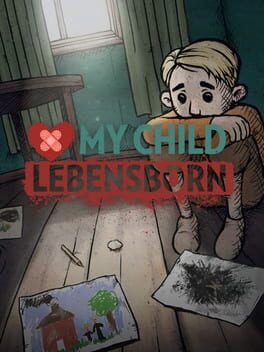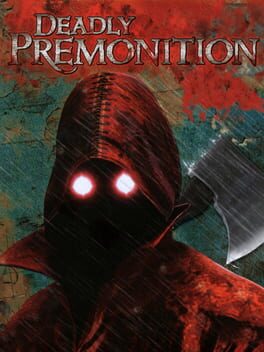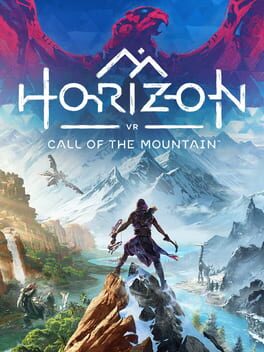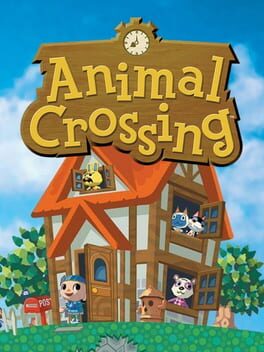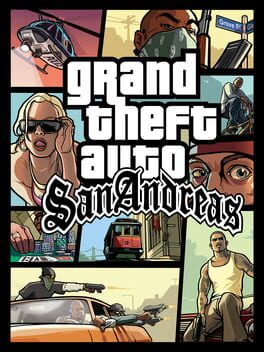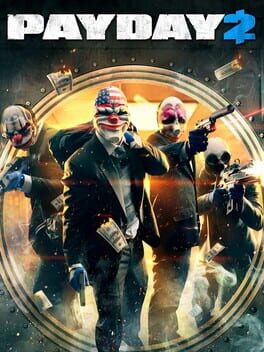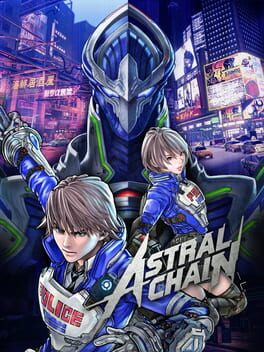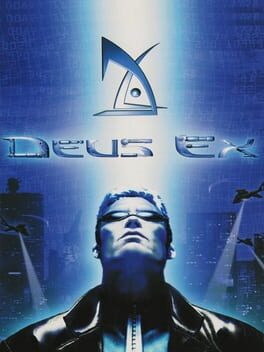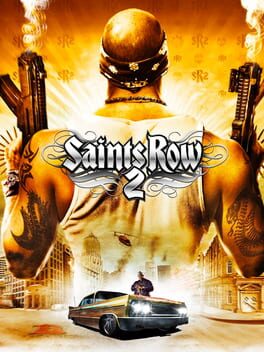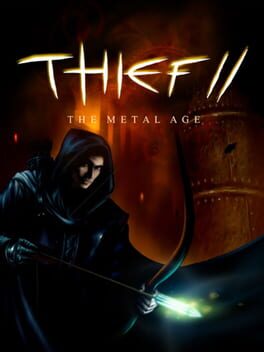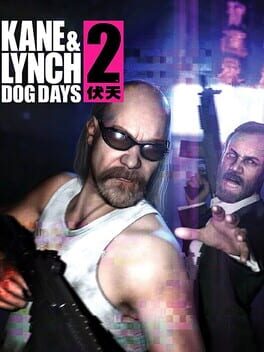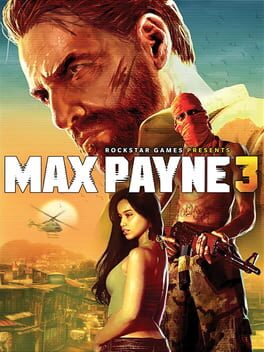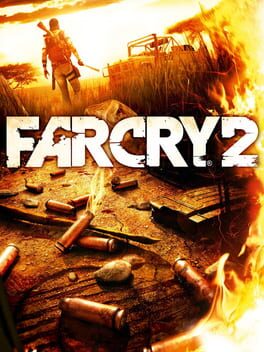jobosno
BACKER
1783 reviews liked by jobosno
Baldur's Gate 3
2020
I have put off re-reviewing this for months. Partly because I dont have the words to express the hold this game has over me, and partly because every time I start thinking about it I get too excited. I havent felt this way about something in a long time, likely since I was a girl in the height of my infatuation with Ace Attorney.
This game is just absolutely astounding, from all angles. There is nothing it does poorly and nothing I would change. I didnt really understand the draw of roleplaying till now, which was the downfall of my first experience, but it is absolutely incredible the things you can learn about yourself pretending to be someone else. Thats not something I can say about any other game, ever. And I can only feel just so grateful, because it's given me so much joy over the past 3 months. Its barely left my mind at all, which feels like an issue at times. I dont know if I'll have an experience like that ever again, after all I created the perfect character and ran through the campaign as him, twice. More or less doing the same thing because I just enjoyed what I had made so much. It grieves me that I kind of have to let go of it, its one of those games that was painful to finish because I just got so attached. It feels like mine, and its one of those autistic things where I cant stand it when anyone else brings it up cause you and I definitley dont see it the way, like a dog hyperaggressive over its food. Specifically dark urge, which feels like it was tailor made for me. Its all so special and I care about it very, very much.
Everyone who worked on bg3 is immensely talented. It's kind of staggering just how talented everyone is. There is not a single voice actor that preformed poorly or out of place, the text is immaculate, nearly every single decision one could make is neatly planned for and has a script. It is just perfect and I could marvel at it forever, cause it really is a feat of human accomplishment to me. The driving force behind my love for this game though is of course the cast. I adore absolutely everyone (minus you Minthara I will always kill you and take your clothes), there are so few games that manage to pull it off, that take you through a journey so long and so profound that you feel a sense of family. Withers' after party is the perfect amalgamation of all this, the joy I felt seeing everyone happy, finally grtting to live their lives was unmatched. Going through the letters of the people you met along the way and seeing that theyre all alright. Astarion specifically holds special meaning to me but I cant talk about that I get too protective. It never fails to make me tear up thinking about it and always makes me feel so grateful that this is in the world and that I got to experience it.
Immensely love all my friends and Scratch and Owlbear and that one weird ox I didnt get to see in act 3 because it glitched out. I will think about you all forever, an autistic girl's promise
This game is just absolutely astounding, from all angles. There is nothing it does poorly and nothing I would change. I didnt really understand the draw of roleplaying till now, which was the downfall of my first experience, but it is absolutely incredible the things you can learn about yourself pretending to be someone else. Thats not something I can say about any other game, ever. And I can only feel just so grateful, because it's given me so much joy over the past 3 months. Its barely left my mind at all, which feels like an issue at times. I dont know if I'll have an experience like that ever again, after all I created the perfect character and ran through the campaign as him, twice. More or less doing the same thing because I just enjoyed what I had made so much. It grieves me that I kind of have to let go of it, its one of those games that was painful to finish because I just got so attached. It feels like mine, and its one of those autistic things where I cant stand it when anyone else brings it up cause you and I definitley dont see it the way, like a dog hyperaggressive over its food. Specifically dark urge, which feels like it was tailor made for me. Its all so special and I care about it very, very much.
Everyone who worked on bg3 is immensely talented. It's kind of staggering just how talented everyone is. There is not a single voice actor that preformed poorly or out of place, the text is immaculate, nearly every single decision one could make is neatly planned for and has a script. It is just perfect and I could marvel at it forever, cause it really is a feat of human accomplishment to me. The driving force behind my love for this game though is of course the cast. I adore absolutely everyone (minus you Minthara I will always kill you and take your clothes), there are so few games that manage to pull it off, that take you through a journey so long and so profound that you feel a sense of family. Withers' after party is the perfect amalgamation of all this, the joy I felt seeing everyone happy, finally grtting to live their lives was unmatched. Going through the letters of the people you met along the way and seeing that theyre all alright. Astarion specifically holds special meaning to me but I cant talk about that I get too protective. It never fails to make me tear up thinking about it and always makes me feel so grateful that this is in the world and that I got to experience it.
Immensely love all my friends and Scratch and Owlbear and that one weird ox I didnt get to see in act 3 because it glitched out. I will think about you all forever, an autistic girl's promise
Crusader Kings III
2020
Crusader Kings 2 was shat out into the world about 12 years ago. By the time its successor came out it'd developed a reputation as a game that was barebones without any DLC but was a gripping and indepth time-abyss if you had most/all of it.
Crusader Kings 3 decides to iterate on its predecessor by being a game that's barebones without any DLC, and still barebones even with all the extortionately overpriced DLC.
It is an inevitability in first-party Paradox titles that the player will eventually stumble into a period of empty space where all they're doing is advancing time at 5x speed until some events pop up and let you do something. Even Stellaris, the game that most often has you actively doing things, tends to fall into it at some point.
CK3 is sadly the worst for it, in part due to numerous under-the-hood changes that at first seem beneficial but in reality seem drab. Paradox's approach this time round involves dissuading players from attempting to colour the map as in past games and instead focus on a small corner of the world - whether it be a kingdom or an Empire, they don't want you playing with adult colouring books this time.
Instead the focus this time is on roleplay and/or kingdom management, with hefty penalties to expansion and harsh limits on how much you as an individual can control directly before needing to shove things onto your vassals. The game, including its tutorials, not-so-subtly nudge you into grabbing hold of a title and clinging to it. New and reworked mechanics like culture/religion/councils/language and more with DLCs all add to this; the focus of this game is in finding a place and staying there.
Unfortunately this focus results in a lot of waiting, as almost all of the mechanics up above boil down to clicking a button and waiting for a scheme to resolve. The much-praised Tours & Tournaments and Royal Court DLCs are much the same despite their praise, simply offering you more buttons before the wait begins rather than just one. It's all rather at odds with the intent to make you more actively partake in your realm's management, because in practice it's all very passive.
Further dulling matters is that many events often boil down to very static, very predictable stat checks. Oh, someone's trying to murder your son - who is 9th in line to the throne and has more defects than limbs? It's just a passive intrigue and scheme power check. Duelling? Martial and Prowess stats.
Much of these additional stats like Prowess were added to make the game less binary, but given how they scale it's relatively easy to stack the deck in your favour unless you gimp yourself...
But even then, this game's biggest problem is that it's easy. Metagaming is no longer required to stack ridiculous bonuses in your court, especially given the relative prominence of random lowborn courtiers with insane stat spreads. CK3 tries its damndest to have consequences for this, but what use is a hit to your legitimacy when you can pump out children that're functionally immune to rebellion, assassination, or the perils of inbreeding?
The DLCs just make this worse, as most of them are nearly consequence-free. Tours & Tournaments is a series of easy resource/stat boosts for relatively low risk, Royal Court is the same and both of them make socializing so much easier. Northern Lords supercharges a lot of the northern factions, and-
You know, CK2 had a bit of a problem with Eurocentrism, to the point where most non-European factions needed a paid DLC to be playable. Even then, it was almost always the titular Crusader King nations/cultures that got all of the updates and boosts.
CK3 seemingly averts this by having everyone on the map be playable, but it doesn't take a genius to notice that the non-European factions feel distinctly undercooked. Muslims can't even observe Ramadan. As expected from a CK title, Paradox sell the fixes back to you via Fate of Iberia and Legacy of Persia, but even these feel half-hearted and empty compared to equivalent CK2 packs. Go even further East and it's like wading into unfinished content.
I think what really broke this game for me is the lack of impact anything has. The first time a council member blackmails you with your own incest/kinslaying, it seems like a grand obstacle to be surmounted, but oftentimes it's a total non-issue. In my most recent game, everyone and their mum tried to expose me for pulling a Habsburg on my bloodline, but the end result was a few minor opinion penalties that were easily swept away by holding a Grand Wedding. It feels a lot like playing a mod for CK2 that's perpetually in beta; wowed by all the options available until they fire and you realize that you've functionally just skipped a stone across bathwater.
...Also I realized halfway into my conquest of Britannia as the Irish that the devs had forced a Legitimacy mechanic on me and that I couldn't meaningfully engage with it without forking out money for the recent Legends Of The Dead pack. Hurray!
The best way to experience this game is to read people's (probably made up) campaign stories on Reddit, for much of this game's remaining appeal is in doing stupid shit like banging the pope, and for once that's attainable without touching the game.
It's been four years and CK3 still feels as hollow and unfulfilling as it did when it came out.
Crusader Kings 3 decides to iterate on its predecessor by being a game that's barebones without any DLC, and still barebones even with all the extortionately overpriced DLC.
It is an inevitability in first-party Paradox titles that the player will eventually stumble into a period of empty space where all they're doing is advancing time at 5x speed until some events pop up and let you do something. Even Stellaris, the game that most often has you actively doing things, tends to fall into it at some point.
CK3 is sadly the worst for it, in part due to numerous under-the-hood changes that at first seem beneficial but in reality seem drab. Paradox's approach this time round involves dissuading players from attempting to colour the map as in past games and instead focus on a small corner of the world - whether it be a kingdom or an Empire, they don't want you playing with adult colouring books this time.
Instead the focus this time is on roleplay and/or kingdom management, with hefty penalties to expansion and harsh limits on how much you as an individual can control directly before needing to shove things onto your vassals. The game, including its tutorials, not-so-subtly nudge you into grabbing hold of a title and clinging to it. New and reworked mechanics like culture/religion/councils/language and more with DLCs all add to this; the focus of this game is in finding a place and staying there.
Unfortunately this focus results in a lot of waiting, as almost all of the mechanics up above boil down to clicking a button and waiting for a scheme to resolve. The much-praised Tours & Tournaments and Royal Court DLCs are much the same despite their praise, simply offering you more buttons before the wait begins rather than just one. It's all rather at odds with the intent to make you more actively partake in your realm's management, because in practice it's all very passive.
Further dulling matters is that many events often boil down to very static, very predictable stat checks. Oh, someone's trying to murder your son - who is 9th in line to the throne and has more defects than limbs? It's just a passive intrigue and scheme power check. Duelling? Martial and Prowess stats.
Much of these additional stats like Prowess were added to make the game less binary, but given how they scale it's relatively easy to stack the deck in your favour unless you gimp yourself...
But even then, this game's biggest problem is that it's easy. Metagaming is no longer required to stack ridiculous bonuses in your court, especially given the relative prominence of random lowborn courtiers with insane stat spreads. CK3 tries its damndest to have consequences for this, but what use is a hit to your legitimacy when you can pump out children that're functionally immune to rebellion, assassination, or the perils of inbreeding?
The DLCs just make this worse, as most of them are nearly consequence-free. Tours & Tournaments is a series of easy resource/stat boosts for relatively low risk, Royal Court is the same and both of them make socializing so much easier. Northern Lords supercharges a lot of the northern factions, and-
You know, CK2 had a bit of a problem with Eurocentrism, to the point where most non-European factions needed a paid DLC to be playable. Even then, it was almost always the titular Crusader King nations/cultures that got all of the updates and boosts.
CK3 seemingly averts this by having everyone on the map be playable, but it doesn't take a genius to notice that the non-European factions feel distinctly undercooked. Muslims can't even observe Ramadan. As expected from a CK title, Paradox sell the fixes back to you via Fate of Iberia and Legacy of Persia, but even these feel half-hearted and empty compared to equivalent CK2 packs. Go even further East and it's like wading into unfinished content.
I think what really broke this game for me is the lack of impact anything has. The first time a council member blackmails you with your own incest/kinslaying, it seems like a grand obstacle to be surmounted, but oftentimes it's a total non-issue. In my most recent game, everyone and their mum tried to expose me for pulling a Habsburg on my bloodline, but the end result was a few minor opinion penalties that were easily swept away by holding a Grand Wedding. It feels a lot like playing a mod for CK2 that's perpetually in beta; wowed by all the options available until they fire and you realize that you've functionally just skipped a stone across bathwater.
...Also I realized halfway into my conquest of Britannia as the Irish that the devs had forced a Legitimacy mechanic on me and that I couldn't meaningfully engage with it without forking out money for the recent Legends Of The Dead pack. Hurray!
The best way to experience this game is to read people's (probably made up) campaign stories on Reddit, for much of this game's remaining appeal is in doing stupid shit like banging the pope, and for once that's attainable without touching the game.
It's been four years and CK3 still feels as hollow and unfulfilling as it did when it came out.
Big Bumpin'
2006
How do you follow up a game that took 139 hours of your life to complete? Big Bumpin' babyyyyyyy wooo hell yeag they put wWhopper in a bumpber cart !!
I am suffering from acute Final Fantasy VII Rebirth dissociative disorder. The idea of playing any video game right now sounds dreadful, but I have a backlog full of games and I gotta stick to that grind, so I had to find something I could stomach. The Burger King Trilogy seemed like as good a choice as any. Each of these three games are short and require little skill, and frankly, they're all on par with some of the minigames in Rebirth. Sounded like a real smooth transition to me, like checking myself into the gaming equivalent of a methadone clinic. Dr. Drew is here, and he's going to ensure I don't get better for maximum profitability.
The last time I played Big Bumpin', or any of the Burger King games for that matter, was back in 2006 when they came out. A real banner year for me and the Xbox. I had these three games and Sonic the Hedgehog (2006), and then my console red ringed a few months later when I rented Chrome Hounds. I was, however, at the right age for BK's bizarre "wake up with the king" campaign, and I was not impervious to its ill-effects. I bought all three of these when they released and tossed them years later, only to have one errant thought about the King waking up in some poor soul's bed which resulted in me grabbing them all again. It might surprise you to know you can easily find boxes full of unopened copies of Big Bumpin' behind Goodwills and on the side of freeways.
Big Bumpin' is a largely inoffensive collection of bumper car minigames, most of which play totally fine but offer very little whether played solo or with friends. Look, nobody had any expectations for this game when it came out, and its most notable qualities are being one of three Xbox/360 hybrid discs, a celebration of a very weird and very specific moment in fast food marketing and having the worst hockey minigame I've ever played. The standard hot potato, destruction derby, and keep-away modes are serviceable if dry, but that hockey game... I don't think a single point was scored that didn't come from the AI or myself knocking the puck into our own goal. I was drunk and listening to Loveline, I don't know what their excuse is.
"How do you guys kill yourselves over there in Korea," Adam asked Minka as I was running a clinic on Brooke Burke and a gigantic man-chicken with a gut full of grain alcohol at 1 in the god damned morning. I don't know the answer to that, but I'm pretty sure I'm going to go out from overconsumption of minigames. I want The King to lower my casket into the cold embrace of the Earth by pushing it in with a bumper car. It's what I deserve.
Marked as "mastered," even though having owned two copies of this game proves I have no willpower and am the master of nothing.
I am suffering from acute Final Fantasy VII Rebirth dissociative disorder. The idea of playing any video game right now sounds dreadful, but I have a backlog full of games and I gotta stick to that grind, so I had to find something I could stomach. The Burger King Trilogy seemed like as good a choice as any. Each of these three games are short and require little skill, and frankly, they're all on par with some of the minigames in Rebirth. Sounded like a real smooth transition to me, like checking myself into the gaming equivalent of a methadone clinic. Dr. Drew is here, and he's going to ensure I don't get better for maximum profitability.
The last time I played Big Bumpin', or any of the Burger King games for that matter, was back in 2006 when they came out. A real banner year for me and the Xbox. I had these three games and Sonic the Hedgehog (2006), and then my console red ringed a few months later when I rented Chrome Hounds. I was, however, at the right age for BK's bizarre "wake up with the king" campaign, and I was not impervious to its ill-effects. I bought all three of these when they released and tossed them years later, only to have one errant thought about the King waking up in some poor soul's bed which resulted in me grabbing them all again. It might surprise you to know you can easily find boxes full of unopened copies of Big Bumpin' behind Goodwills and on the side of freeways.
Big Bumpin' is a largely inoffensive collection of bumper car minigames, most of which play totally fine but offer very little whether played solo or with friends. Look, nobody had any expectations for this game when it came out, and its most notable qualities are being one of three Xbox/360 hybrid discs, a celebration of a very weird and very specific moment in fast food marketing and having the worst hockey minigame I've ever played. The standard hot potato, destruction derby, and keep-away modes are serviceable if dry, but that hockey game... I don't think a single point was scored that didn't come from the AI or myself knocking the puck into our own goal. I was drunk and listening to Loveline, I don't know what their excuse is.
"How do you guys kill yourselves over there in Korea," Adam asked Minka as I was running a clinic on Brooke Burke and a gigantic man-chicken with a gut full of grain alcohol at 1 in the god damned morning. I don't know the answer to that, but I'm pretty sure I'm going to go out from overconsumption of minigames. I want The King to lower my casket into the cold embrace of the Earth by pushing it in with a bumper car. It's what I deserve.
Marked as "mastered," even though having owned two copies of this game proves I have no willpower and am the master of nothing.
A game that heaves and quakes under the stress of being played normally.
club LOL, streetpass homes, multiplayer island minigames, villagers with developing personalities and personal arcs, secondhand shop, nook homes, the best soundtrack in the series, the amiibo update, the entire mall strip that grew and expanded along with your town
hundreds of hours. stuck with me throughout the worst years of my teenage life. spent multiple solitary holidays and lonely new years' with this. i never even paid off my house.
it doesn't feel the same going back to play it now. it's got its issues, but i'm tired of acting like Animal Crossing didn't peak here. i'm tired of lamenting the Animal Crossing I used to love and trying and failing to rekindle that with New Horizons. instead i'm going to forever cherish the time i had with it. it's now a time capsule to me, a reminder of some comfort that i always had during my worst years. i will always get emotional remembering my time with this game.
(4/9/24)
thank you for being there for me.
hundreds of hours. stuck with me throughout the worst years of my teenage life. spent multiple solitary holidays and lonely new years' with this. i never even paid off my house.
it doesn't feel the same going back to play it now. it's got its issues, but i'm tired of acting like Animal Crossing didn't peak here. i'm tired of lamenting the Animal Crossing I used to love and trying and failing to rekindle that with New Horizons. instead i'm going to forever cherish the time i had with it. it's now a time capsule to me, a reminder of some comfort that i always had during my worst years. i will always get emotional remembering my time with this game.
(4/9/24)
thank you for being there for me.
Harvestella
2022
TLDR: A great JRPG that seamlessly incorporates farming mechanics into the genre, but starts slow and feels strangely tight on budget for its starting 60$ price tag.
Personally, I loved this game; my own enjoyment was above 4 stars, but I think its really something where your mileage is going to wildly vary. I definitely didn't love it at first, mostly because I went through every single townfolk quest ASAP, which is where the game's worst parts show; low number of character animations, NPC models, lack of voiced dialogue, and lots of reused music. I still found myself excited to keep playing though, egged on by new recipes to make, plants to farm, characters to meet, all that. The slowest part of the game is also when you're recruiting your party, and each new member additionally brings a new job for you to use. I'm sure people aren't clamoring for another JRPG that starts slow and feels great by the end, but I'll spend the rest of this review explaining why this game was good, I promise.
I alluded to this earlier, but the farming is a consistent high point in the game. Its simple, of course, but still gratifying; everything you do on the farm feeds into combat, like how you make all your own items to use during combat.
I liked the cast, and all of the 2D art and character designs are fantastic. I mentioned the townfolk quests earlier, but all of the character quests were great- much more interesting storylines that also teach you about the game's world, and are also just in shorter, more digestible conversations than the townfolk dialogues. Overall, the game was pretty, though sometimes the seemingly low budget shines through. The music was another high point for me, even despite tracks getting reused often. I don't have many games I've played to compare this game's combat to, but I didn't feel any particular way about it. I'll take any JRPG where enemy encounters are seamlessly integrated into the world you're exploring, but perhaps that's a low bar nowadays.
The story goes places. The game is presented as typical fantasy, but I should warn you that it veers into sci-fi a fair amount. I was drawn in by it, and found it uplifting at times; it's pretty anime, though, and I could see some people reading it as trite.
At the end of the day, I'm going to reccomend this to JRPG fans, especially those who have played life sims before as well or just enjoy some simple pleasures. I don't think this game stands as some staple, but it does feel a little bit like an underappreciated title, and it's had good sales in the past.
Personally, I loved this game; my own enjoyment was above 4 stars, but I think its really something where your mileage is going to wildly vary. I definitely didn't love it at first, mostly because I went through every single townfolk quest ASAP, which is where the game's worst parts show; low number of character animations, NPC models, lack of voiced dialogue, and lots of reused music. I still found myself excited to keep playing though, egged on by new recipes to make, plants to farm, characters to meet, all that. The slowest part of the game is also when you're recruiting your party, and each new member additionally brings a new job for you to use. I'm sure people aren't clamoring for another JRPG that starts slow and feels great by the end, but I'll spend the rest of this review explaining why this game was good, I promise.
I alluded to this earlier, but the farming is a consistent high point in the game. Its simple, of course, but still gratifying; everything you do on the farm feeds into combat, like how you make all your own items to use during combat.
I liked the cast, and all of the 2D art and character designs are fantastic. I mentioned the townfolk quests earlier, but all of the character quests were great- much more interesting storylines that also teach you about the game's world, and are also just in shorter, more digestible conversations than the townfolk dialogues. Overall, the game was pretty, though sometimes the seemingly low budget shines through. The music was another high point for me, even despite tracks getting reused often. I don't have many games I've played to compare this game's combat to, but I didn't feel any particular way about it. I'll take any JRPG where enemy encounters are seamlessly integrated into the world you're exploring, but perhaps that's a low bar nowadays.
The story goes places. The game is presented as typical fantasy, but I should warn you that it veers into sci-fi a fair amount. I was drawn in by it, and found it uplifting at times; it's pretty anime, though, and I could see some people reading it as trite.
At the end of the day, I'm going to reccomend this to JRPG fans, especially those who have played life sims before as well or just enjoy some simple pleasures. I don't think this game stands as some staple, but it does feel a little bit like an underappreciated title, and it's had good sales in the past.
Dragon's Dogma II
2024
"The world once shaped by the great will has come to an end.
It was a foregone conclusion. All is preordained.
If in spite of this you still have the will to fight, now is your chance to prove it."
This is a particularly difficult game for me to write about because I want to greedily compare and contrast every ballhair with the first title’s, just so I can diagnose exactly where my issues with it lie - why a game that is functionally so similar in DNA to one of my all-timers doesn’t hit the mark. Personally speakin, the long & short of it is that Dragon’s Dogma 2 is something of a sidegrade to the original title that distances itself too much from what I found spectacular about it to begin with.
Possibly my favourite element of Dragon’s Dogma 2 is one that could be felt from the moment you first gain control of your character. There’s a palpable heft to character locomotion, complimented by the multilayered textuality of the land itself & the threats of wrong turns into the unknown or slipping off a slick cliffside to your untimely demise - it leans wonderfully far into the concept of traversal being a battle unto itself. As was the case with DD1, being tasked to travel from safety to a marker deep into the fog of war is never a simple request. Goblins, ogres, harpies, and whoever else decides to grace you with their presence are waiting in the bushes to act as regular speedbumps to be carefully considered and planned for accordingly.
Where DD2 slips at this for me is in how little it reciprocates for what it demands. This is a sequel that has ballooned itself in scale to a dizzying near 5x the original map’s size, but hasn’t developed the enemy roster nor the environmental design acumen to make use of it. Take for instance that DD2 has fifty caves strewn around its tectonic world map, and I don’t think a single one is as impressive as one that could be found in DD1. Where the caves/dungeons in DD1 were concerned, there would be special objectives relevant to the overall story, a person you were going there on behalf of who represented a town or group, they would unlock shortcuts for faster world traversal and upon repeat visits you’d notice the location’s role in the world change for the denizens. They would be densely designed so that every corner was worth being scanned to the best of your ability for pickups, shortcuts, levers, climbing points - lending to the almost DnD-esque adventure core followed passionately by the game’s design. Hell, the locales would generally sound and look different too, built to purpose so as to become plausible enough to justify their utility in the world and lend credence to exploring them.
Compared to that, DD2 has shockingly little of this. Its myriad nondescript caves wallhugging the world could scarcely be five prefab rooms tied into a loop to house a few potions, or some equipment you could find at a store. No unique gimmicks or trials, only populated by a handful of gobbos and maybe a midboss as a treat. I feel that Dragonsbreath Tower was supposed to act as something of a callback to Bluemoon Tower from DD1 - it being a perilous journey across a handful of biomes towards a crumbling hanging dungeon that houses a flying peril, but it’s so bereft of pomp and confidence. A truly memetic core routine that made me think less of adventures and more of waypoints and upgrade materials. I want to use a Neuralyzer to remove BotW shrines from the face of the earth. And god why is none of the new music good.
DD2 implies at a big story, but to me it felt like nothing came together. I had no idea who anyone was supposed to be beyond Brant, Sven and Wilhelmina. DD1’s progression from Wyrmhunt -> Investigate the Cult -> Kill Grigori -> Deal with the Everfall -> Confront the Seneschal was great, and throughout all of that you kept up with characters like the King and got to see his downfall. The writing and delivery of the cult leader and Grigori himself far surpasses anything in DD2, despite having very similar subjects. Outpaced by DD1 in setpieces and pop-offs and thematics. There's barely any antagonistic people in the game and once you get to Battahl it feels as though the game trails off like it’s got dementia.
It's a completely different kind of design that, sure, encourages player freedom - but communicates it in this really loose way that I just don't care about. I spent much of my playthrough having no idea what I was doing besides wiping off the blank smudges of world map. What expounds this problem is that quest discoverability is astonishingly low here, oftentimes made worse by restricting itself to AI astrology, time of day, relationship levels (??). The duke could stand to commission a farcking quest board imo!!! I won’t kid myself and say that the quests in DD1 were even a bronze standard, but they worked and communicated exactly what they needed to do while also leaving open ends available for interpretation. But in DD2, they’re just awful, I absolutely hated the experience of trying to clear up Vermund’s quests before pushing Main Story progression and at this point I wish I cared as little as the game does. What need is there for almost all of them to have a “return to me in a few days” component in a game with such limited fast travel, do you want me to throw you into the brine? Frankly the game is never as interesting as when you're doing Sphinx riddles.
Combat’s good enough, I do enjoy how the interplay of systems would present the player with all sorts of unique situations, but even these can and do begin to feel samey when a very slim enemy pool on shuffle. What makes these emergent conflicts even less impressive to me is how I can't help but feel as though the ogres, trolls and chimeras in particular have had their difficulties neutered. The hardest time I had with the chimera was during a sidequest where you had to get the poison-lover to be doused in chimeric snake venom. They're barely a threat otherwise, and can either be chain stunlocked with well-placed shots or slashes, or get too lost in their own attack animations to really hit anyone. Comparing these enemies to DD1 where climbing was far more effective at dealing damage encouraged the player to get real up close to them and it felt like their AI knew how to deal with that. Like when I fought the Medusa it felt like they didn't have any idea where the party even was. I think if the hardest encounters the game has to offer is Too Many Goblins we have a problem. (Dullahan is very cool though)
I’m not miffed no matter how miffed I sound. When do people like me ever get sequels to games they love? I’ll tell u dear reader it’s Never. Dragon’s Dogma 2 is full of wonder & delight and I think anyone less fatigued by SCALE and SANDBOX than me has a home in it. I feel a little left behind, having spent 12 years wasting away in the waiting room rotating in my head the concepts DD1 confidently wields, and its further potential as a foundation for a sequel. A game that was absolutely 'for me', course correcting into sick-of-this-already airspace. I’ll be excited to see whatever news, expansions or the like the future holds for DD2. Right now, though? I think DD1 has a stronger jawline.
It was a foregone conclusion. All is preordained.
If in spite of this you still have the will to fight, now is your chance to prove it."
This is a particularly difficult game for me to write about because I want to greedily compare and contrast every ballhair with the first title’s, just so I can diagnose exactly where my issues with it lie - why a game that is functionally so similar in DNA to one of my all-timers doesn’t hit the mark. Personally speakin, the long & short of it is that Dragon’s Dogma 2 is something of a sidegrade to the original title that distances itself too much from what I found spectacular about it to begin with.
Possibly my favourite element of Dragon’s Dogma 2 is one that could be felt from the moment you first gain control of your character. There’s a palpable heft to character locomotion, complimented by the multilayered textuality of the land itself & the threats of wrong turns into the unknown or slipping off a slick cliffside to your untimely demise - it leans wonderfully far into the concept of traversal being a battle unto itself. As was the case with DD1, being tasked to travel from safety to a marker deep into the fog of war is never a simple request. Goblins, ogres, harpies, and whoever else decides to grace you with their presence are waiting in the bushes to act as regular speedbumps to be carefully considered and planned for accordingly.
Where DD2 slips at this for me is in how little it reciprocates for what it demands. This is a sequel that has ballooned itself in scale to a dizzying near 5x the original map’s size, but hasn’t developed the enemy roster nor the environmental design acumen to make use of it. Take for instance that DD2 has fifty caves strewn around its tectonic world map, and I don’t think a single one is as impressive as one that could be found in DD1. Where the caves/dungeons in DD1 were concerned, there would be special objectives relevant to the overall story, a person you were going there on behalf of who represented a town or group, they would unlock shortcuts for faster world traversal and upon repeat visits you’d notice the location’s role in the world change for the denizens. They would be densely designed so that every corner was worth being scanned to the best of your ability for pickups, shortcuts, levers, climbing points - lending to the almost DnD-esque adventure core followed passionately by the game’s design. Hell, the locales would generally sound and look different too, built to purpose so as to become plausible enough to justify their utility in the world and lend credence to exploring them.
Compared to that, DD2 has shockingly little of this. Its myriad nondescript caves wallhugging the world could scarcely be five prefab rooms tied into a loop to house a few potions, or some equipment you could find at a store. No unique gimmicks or trials, only populated by a handful of gobbos and maybe a midboss as a treat. I feel that Dragonsbreath Tower was supposed to act as something of a callback to Bluemoon Tower from DD1 - it being a perilous journey across a handful of biomes towards a crumbling hanging dungeon that houses a flying peril, but it’s so bereft of pomp and confidence. A truly memetic core routine that made me think less of adventures and more of waypoints and upgrade materials. I want to use a Neuralyzer to remove BotW shrines from the face of the earth. And god why is none of the new music good.
DD2 implies at a big story, but to me it felt like nothing came together. I had no idea who anyone was supposed to be beyond Brant, Sven and Wilhelmina. DD1’s progression from Wyrmhunt -> Investigate the Cult -> Kill Grigori -> Deal with the Everfall -> Confront the Seneschal was great, and throughout all of that you kept up with characters like the King and got to see his downfall. The writing and delivery of the cult leader and Grigori himself far surpasses anything in DD2, despite having very similar subjects. Outpaced by DD1 in setpieces and pop-offs and thematics. There's barely any antagonistic people in the game and once you get to Battahl it feels as though the game trails off like it’s got dementia.
It's a completely different kind of design that, sure, encourages player freedom - but communicates it in this really loose way that I just don't care about. I spent much of my playthrough having no idea what I was doing besides wiping off the blank smudges of world map. What expounds this problem is that quest discoverability is astonishingly low here, oftentimes made worse by restricting itself to AI astrology, time of day, relationship levels (??). The duke could stand to commission a farcking quest board imo!!! I won’t kid myself and say that the quests in DD1 were even a bronze standard, but they worked and communicated exactly what they needed to do while also leaving open ends available for interpretation. But in DD2, they’re just awful, I absolutely hated the experience of trying to clear up Vermund’s quests before pushing Main Story progression and at this point I wish I cared as little as the game does. What need is there for almost all of them to have a “return to me in a few days” component in a game with such limited fast travel, do you want me to throw you into the brine? Frankly the game is never as interesting as when you're doing Sphinx riddles.
Combat’s good enough, I do enjoy how the interplay of systems would present the player with all sorts of unique situations, but even these can and do begin to feel samey when a very slim enemy pool on shuffle. What makes these emergent conflicts even less impressive to me is how I can't help but feel as though the ogres, trolls and chimeras in particular have had their difficulties neutered. The hardest time I had with the chimera was during a sidequest where you had to get the poison-lover to be doused in chimeric snake venom. They're barely a threat otherwise, and can either be chain stunlocked with well-placed shots or slashes, or get too lost in their own attack animations to really hit anyone. Comparing these enemies to DD1 where climbing was far more effective at dealing damage encouraged the player to get real up close to them and it felt like their AI knew how to deal with that. Like when I fought the Medusa it felt like they didn't have any idea where the party even was. I think if the hardest encounters the game has to offer is Too Many Goblins we have a problem. (Dullahan is very cool though)
I’m not miffed no matter how miffed I sound. When do people like me ever get sequels to games they love? I’ll tell u dear reader it’s Never. Dragon’s Dogma 2 is full of wonder & delight and I think anyone less fatigued by SCALE and SANDBOX than me has a home in it. I feel a little left behind, having spent 12 years wasting away in the waiting room rotating in my head the concepts DD1 confidently wields, and its further potential as a foundation for a sequel. A game that was absolutely 'for me', course correcting into sick-of-this-already airspace. I’ll be excited to see whatever news, expansions or the like the future holds for DD2. Right now, though? I think DD1 has a stronger jawline.
Dragon's Dogma II
2024
This review contains spoilers
"then behold a world unmerciful, bereft of the benevolent hand that guides." 👍 all good with me, keep makin em
Dragon's Dogma II
2024
I love the way exploration works here; the refusal to budge on fast travel save for diegetic ox carts, snatching back dark arisen's infinite ferrystone, and stretching the landmass both horizontally and (especially) vertically is wonderful. in many, many ways it's a bigger, slower, denser game, and they did it all while focusing on the most mundane environments devoid of giant theme park attractions bulging from every flat surface
likewise I love the idea of elaborating on the sense of traversal and moving toward a holistic spirit of adventure. deteriorating health ceilings aid attrition and help answer the inherent slime of menu heals, and having campfire rests operate as something of a risk/reward mechanism goes a long way toward giving each journey a greater heft and substance
even something as transparently gamey as designing the map as a network of funnels and chokepoints stippled with smaller threats and crosshatched with bigger ones was very clever; it's all just nouns crashing against nouns as they fire down chutes, but when coupled with the meaty physicality of the game's interactivity it goes a long way toward building up those Big Moments
but the consequence of trash mobs operating as speedbumps means moment-to-moment encounters operate more as filler than anything you could consider independently engaging scenarios. it also means that despite the map being several times larger than gransys it ends up feeling a lot more suffocating due to all the overlapping nouns slamming and interrupting each other without end
I just about luxuriated in the rare opportunities to enjoy brief spells of negative space; I savoured it like one of those FMV steaks. I'd kill for more moments like the arbor or the battleground where I was able to inhabit the world as a pilgrim or wanderer rather than serial wolf slaughterer or battahl sanitation expert, but they're very few and far between
there's no escaping the impenetrable walls of goblins, wolves, harpies, and saurians polluting every inch of the world. the already slender DD bestiary's been ported over nearly 1:1 with about as many additions as subtractions, and between the absurd density and massive landmass the variety ends up looking and feeling significantly worse than it did when it was first pilloried twelve years ago in a notoriously incomplete game
when the Big Moments do happen they're often spectacular, and it's easy to see why the chaotic intersection of AI, systems, and mechanics was prioritized so heavily and centered as the focal point of the entire experience. early on every bridge that breaks behind you, every ogre leaping from city walls, and every gryphon that crushes your ox cart feels huge and spellbinding; the game's at its best when all the moving parts align just right to achieve dynamic simulacrum, leveraging unpredictability to carry encounters well above their station
where that stuff loses me most is in the complete lack of friction. for a game with so many well considered means of drawing tension out of discovery it manages to render most of them meaningless when you're never being properly threatened enough to let them kick in. camping, eating, crafting, consumables, ambushes, and setpieces all take a significant blow from the chronic lack of bite, and it's frustrating to see so much potential go to waste when everything's already set up unbelievably well for success
even if you choose to go it alone, or do as I did and run with a party of two (ida + ozma: wily beastren + weakest creature), it only does so much when every corner of the map has CAPCOM Co., Ltd superpawns and npcs popping out of the ground to aid you unbidden and monsters are all mâché sculptures begging to be stunlocked. where's hard mode? why does it feel like everything DDDA did right got ignored? we just don't know
I'd have been happy if the game yanked a bit of control back with some kinda endgame/post-game dungeon, but there isn't one; there aren't really dungeons in general. in opting for quantity (50+!!) over quality we end up with none of them feeling particularly curated, and none of them having the scope or menace of the everfall, let alone bitterblack. no ur-dragon either, which is just baffling. the entire run from endgame to post-game is a gaping hole where something oughta be but certainly isn't
when I hit credits I felt almost confused, like I'd just been tricked into playing a remake or reboot of the original dragon's dogma that somehow had less material stretched even thinner. I enjoyed what I played for the most part, but the more thought I put into it the more it feels compromised and unfinished in all the exact ways itsuno promised over and over it wouldn't be this time around
there's a lot to love here: stuff like fucked up modular teeth, the sphinx, seeker coin platforming, pawn bullshitting, the dragonsplague, cyclops ragdolls, opaque sidequests, intentional tedium, and routinely bizarre interactions. much of what was good in the past remains good, and even bits that stumble backward generally land someplace close to decent regardless. some of the vocation/gear downgrades aren't to my liking, and there's an odd shallowness that hangs over the experience, but I think I liked it?
I just don't really get it
likewise I love the idea of elaborating on the sense of traversal and moving toward a holistic spirit of adventure. deteriorating health ceilings aid attrition and help answer the inherent slime of menu heals, and having campfire rests operate as something of a risk/reward mechanism goes a long way toward giving each journey a greater heft and substance
even something as transparently gamey as designing the map as a network of funnels and chokepoints stippled with smaller threats and crosshatched with bigger ones was very clever; it's all just nouns crashing against nouns as they fire down chutes, but when coupled with the meaty physicality of the game's interactivity it goes a long way toward building up those Big Moments
but the consequence of trash mobs operating as speedbumps means moment-to-moment encounters operate more as filler than anything you could consider independently engaging scenarios. it also means that despite the map being several times larger than gransys it ends up feeling a lot more suffocating due to all the overlapping nouns slamming and interrupting each other without end
I just about luxuriated in the rare opportunities to enjoy brief spells of negative space; I savoured it like one of those FMV steaks. I'd kill for more moments like the arbor or the battleground where I was able to inhabit the world as a pilgrim or wanderer rather than serial wolf slaughterer or battahl sanitation expert, but they're very few and far between
there's no escaping the impenetrable walls of goblins, wolves, harpies, and saurians polluting every inch of the world. the already slender DD bestiary's been ported over nearly 1:1 with about as many additions as subtractions, and between the absurd density and massive landmass the variety ends up looking and feeling significantly worse than it did when it was first pilloried twelve years ago in a notoriously incomplete game
when the Big Moments do happen they're often spectacular, and it's easy to see why the chaotic intersection of AI, systems, and mechanics was prioritized so heavily and centered as the focal point of the entire experience. early on every bridge that breaks behind you, every ogre leaping from city walls, and every gryphon that crushes your ox cart feels huge and spellbinding; the game's at its best when all the moving parts align just right to achieve dynamic simulacrum, leveraging unpredictability to carry encounters well above their station
where that stuff loses me most is in the complete lack of friction. for a game with so many well considered means of drawing tension out of discovery it manages to render most of them meaningless when you're never being properly threatened enough to let them kick in. camping, eating, crafting, consumables, ambushes, and setpieces all take a significant blow from the chronic lack of bite, and it's frustrating to see so much potential go to waste when everything's already set up unbelievably well for success
even if you choose to go it alone, or do as I did and run with a party of two (ida + ozma: wily beastren + weakest creature), it only does so much when every corner of the map has CAPCOM Co., Ltd superpawns and npcs popping out of the ground to aid you unbidden and monsters are all mâché sculptures begging to be stunlocked. where's hard mode? why does it feel like everything DDDA did right got ignored? we just don't know
I'd have been happy if the game yanked a bit of control back with some kinda endgame/post-game dungeon, but there isn't one; there aren't really dungeons in general. in opting for quantity (50+!!) over quality we end up with none of them feeling particularly curated, and none of them having the scope or menace of the everfall, let alone bitterblack. no ur-dragon either, which is just baffling. the entire run from endgame to post-game is a gaping hole where something oughta be but certainly isn't
when I hit credits I felt almost confused, like I'd just been tricked into playing a remake or reboot of the original dragon's dogma that somehow had less material stretched even thinner. I enjoyed what I played for the most part, but the more thought I put into it the more it feels compromised and unfinished in all the exact ways itsuno promised over and over it wouldn't be this time around
there's a lot to love here: stuff like fucked up modular teeth, the sphinx, seeker coin platforming, pawn bullshitting, the dragonsplague, cyclops ragdolls, opaque sidequests, intentional tedium, and routinely bizarre interactions. much of what was good in the past remains good, and even bits that stumble backward generally land someplace close to decent regardless. some of the vocation/gear downgrades aren't to my liking, and there's an odd shallowness that hangs over the experience, but I think I liked it?
I just don't really get it
Dragon's Dogma II
2024
uuuuuUUUUUUUUUUUUGH
This is not really a review, just an opportunity for me to rant - because the gaming industry is currently at an absolute low in some ways and I'm sort of reaching a boiling point about it.
So I love the original Dragon's Dogma. It is, to me, the perfect game that just happens to be woefully imperfect. I love its worldbuilding, I love its gameplay concepts, I love its open world. I love so many things about it, but almost every aspect of it that I enjoy comes with a big ol' asterisk that prevents me from being able to give it the bright shiny gold star that I so desperately want to confer. Unfortunately, it languished in that lukewarm spot between "cult classic" and "abject mediocrity" that had me resigned to the sentiment that it would never get a re-release, let alone a sequel.
Of course, my fears ultimately ended up being unfounded, with the game receiving a fantastic PC port in 2016 and a sequel being officially announced a few years later. Seldom in my life have I ever been so excited for a release, and you'd better believe I was there each time Capcom finally loosed new details on the game. And now it's here!
The prevailing sentiment amongst those who have played Dragon's Dogma II seems to be that it is very much the original experience with some nips and tucks. To some, that might be massively disappointing - but to me, that is an absolute godsend. As far as I was concerned, the OG was a rock-solid concept that simply needed some careful polishing. The idea that Dragon's Dogma II could be loosely described as "Dragon's Dogma but better" is the very definition of a perfect sequel for me. As such, my excitement since its release has absolutely rocketed through the roof... Or that's really what I want to say, but the truth is Capcom's really managed to hurt my feelings this time around.
I'm not as flummoxed by these practices as I think some are because I was there when Capcom was shipping games with characters already on the disc that you had to pay extra to unlock. They were very much trendsetters in the hellscape that is the world of in-game purchases, and as a result their more recent monetization practices seem almost amusingly mild by comparison. In the case of DDII, it seemed to me that at the extra purchasable content was purely to "skip the line" with regards to features that already exist in-game, and thus were simply of the bog-standard "baiting the impatient" flavor. Note that I'm not blaming the "impatient" in this equation - I totally understand how irritating it can be when things such as character modification are arbitrarily gated off, and dangling an opportunity to unlock it at any time in exchange for a few extra bucks is unquestionably a dick move. However, it's not being excised from the base game altogether to be sold to you, so at least in that respect you have the option of ignoring it and simply working your way around it. To me, that's much more benign, even for as lame as it is at the end of the day.
But it IS lame. And so is the $70 price tag, and the shitty PC performance, and Capcom's usual shrugging off of player's complaints, and the fact that I have to reckon with all of these things if I want to play this game that I have eagerly been awaiting for years. I just moved to a new house - a life event that I am very glad for, but also one that is unquestionably a drain on one's finances. I'm really not in a position where I can go tossing every spare cent I have at the next big shiny thing, which already makes my primary hobby a very difficult one to entertain in 2024. However, more and more I'm running into the issue that even if I was the kind of person that could afford to pick up every new release, I don't know that any of these companies actually deserve it. Sony and Microsoft are selling $500 Netflix machines with barely any software to actually justify their existence. Nintendo is out here knocking over emulators and fan projects as if it's ever going to prevent people from pirating their games. Rockstar's assuredly going to ride off of Shark Cards from Grand Theft Auto 6 until I'm in a retirement home, CD Projekt Red is doing their best to pretend like they didn't sell lies to a whole generation of gamers based almost wholly on their Witcher 3 clout, Todd Howard found a way to resell Skyrim another time by dressing it up as a space sim, Konami is proving they will abuse their IPs as many times as it continues to make them money - and yeah, it's still making them all money! People are still buying the games! Day one! Repeatedly! Knowing full damn well it's probably not going to be worth it! And yet, the reason why I'm so miffed about this is because for once I feel like it absolutely would be worth it - because Dragon's Dogma II really does seem like it's the game I've wished for, but does that mean I should be dumping my wallet out for Capcom yet again? I don't know that I should. I know that if I buy the game in its current state, no matter how much I ultimately may enjoy it, it's going to make me feel dirty. And I hate that. I love games and I hate this. It makes me want to tear my hair out.
I can't roast anybody who has purchased the game and is having a good time with it right now. Life's hard enough and damn, if you're having a fun enough time that it makes your 70 bones feel like they were well-spent, who am I to deny you that pleasure? But just once - just once - I wish everybody would be willing to throw their hands up and say "I don't care if this game is the next coming of Digital Jesus, I want you to quit jerking me around". Because I'm tired of getting jerked around. I have massive respect for the people who worked a bajillion hours to make this game match the vision they had in mind for it. I know this isn't their fault. I want to reward them for their hard work by making this game a success, and I know my dumb ass is probably still going to buy the game once I can afford to (and once the game isn't melting people's CPUs). But another year of this and I'm likely to start writing off modern gaming as a whole in favor of diving into the "good old days" - because even if I feel like an old codger for saying it, there was at least a time when I didn't have to feel like a jackass for being excited about my hobby.
This is not really a review, just an opportunity for me to rant - because the gaming industry is currently at an absolute low in some ways and I'm sort of reaching a boiling point about it.
So I love the original Dragon's Dogma. It is, to me, the perfect game that just happens to be woefully imperfect. I love its worldbuilding, I love its gameplay concepts, I love its open world. I love so many things about it, but almost every aspect of it that I enjoy comes with a big ol' asterisk that prevents me from being able to give it the bright shiny gold star that I so desperately want to confer. Unfortunately, it languished in that lukewarm spot between "cult classic" and "abject mediocrity" that had me resigned to the sentiment that it would never get a re-release, let alone a sequel.
Of course, my fears ultimately ended up being unfounded, with the game receiving a fantastic PC port in 2016 and a sequel being officially announced a few years later. Seldom in my life have I ever been so excited for a release, and you'd better believe I was there each time Capcom finally loosed new details on the game. And now it's here!
The prevailing sentiment amongst those who have played Dragon's Dogma II seems to be that it is very much the original experience with some nips and tucks. To some, that might be massively disappointing - but to me, that is an absolute godsend. As far as I was concerned, the OG was a rock-solid concept that simply needed some careful polishing. The idea that Dragon's Dogma II could be loosely described as "Dragon's Dogma but better" is the very definition of a perfect sequel for me. As such, my excitement since its release has absolutely rocketed through the roof... Or that's really what I want to say, but the truth is Capcom's really managed to hurt my feelings this time around.
I'm not as flummoxed by these practices as I think some are because I was there when Capcom was shipping games with characters already on the disc that you had to pay extra to unlock. They were very much trendsetters in the hellscape that is the world of in-game purchases, and as a result their more recent monetization practices seem almost amusingly mild by comparison. In the case of DDII, it seemed to me that at the extra purchasable content was purely to "skip the line" with regards to features that already exist in-game, and thus were simply of the bog-standard "baiting the impatient" flavor. Note that I'm not blaming the "impatient" in this equation - I totally understand how irritating it can be when things such as character modification are arbitrarily gated off, and dangling an opportunity to unlock it at any time in exchange for a few extra bucks is unquestionably a dick move. However, it's not being excised from the base game altogether to be sold to you, so at least in that respect you have the option of ignoring it and simply working your way around it. To me, that's much more benign, even for as lame as it is at the end of the day.
But it IS lame. And so is the $70 price tag, and the shitty PC performance, and Capcom's usual shrugging off of player's complaints, and the fact that I have to reckon with all of these things if I want to play this game that I have eagerly been awaiting for years. I just moved to a new house - a life event that I am very glad for, but also one that is unquestionably a drain on one's finances. I'm really not in a position where I can go tossing every spare cent I have at the next big shiny thing, which already makes my primary hobby a very difficult one to entertain in 2024. However, more and more I'm running into the issue that even if I was the kind of person that could afford to pick up every new release, I don't know that any of these companies actually deserve it. Sony and Microsoft are selling $500 Netflix machines with barely any software to actually justify their existence. Nintendo is out here knocking over emulators and fan projects as if it's ever going to prevent people from pirating their games. Rockstar's assuredly going to ride off of Shark Cards from Grand Theft Auto 6 until I'm in a retirement home, CD Projekt Red is doing their best to pretend like they didn't sell lies to a whole generation of gamers based almost wholly on their Witcher 3 clout, Todd Howard found a way to resell Skyrim another time by dressing it up as a space sim, Konami is proving they will abuse their IPs as many times as it continues to make them money - and yeah, it's still making them all money! People are still buying the games! Day one! Repeatedly! Knowing full damn well it's probably not going to be worth it! And yet, the reason why I'm so miffed about this is because for once I feel like it absolutely would be worth it - because Dragon's Dogma II really does seem like it's the game I've wished for, but does that mean I should be dumping my wallet out for Capcom yet again? I don't know that I should. I know that if I buy the game in its current state, no matter how much I ultimately may enjoy it, it's going to make me feel dirty. And I hate that. I love games and I hate this. It makes me want to tear my hair out.
I can't roast anybody who has purchased the game and is having a good time with it right now. Life's hard enough and damn, if you're having a fun enough time that it makes your 70 bones feel like they were well-spent, who am I to deny you that pleasure? But just once - just once - I wish everybody would be willing to throw their hands up and say "I don't care if this game is the next coming of Digital Jesus, I want you to quit jerking me around". Because I'm tired of getting jerked around. I have massive respect for the people who worked a bajillion hours to make this game match the vision they had in mind for it. I know this isn't their fault. I want to reward them for their hard work by making this game a success, and I know my dumb ass is probably still going to buy the game once I can afford to (and once the game isn't melting people's CPUs). But another year of this and I'm likely to start writing off modern gaming as a whole in favor of diving into the "good old days" - because even if I feel like an old codger for saying it, there was at least a time when I didn't have to feel like a jackass for being excited about my hobby.
208 lists liked by jobosno
by moschidae |
3 Games
by faea |
11 Games
by curse |
42 Games
by psychbomb |
19 Games
by LordDarias |
26 Games
by Seth |
14 Games
by MiraMiraOTW |
25 Games
by FullyOttoMatic |
15 Games
by proximete |
27 Games
by zachmaycry |
30 Games


